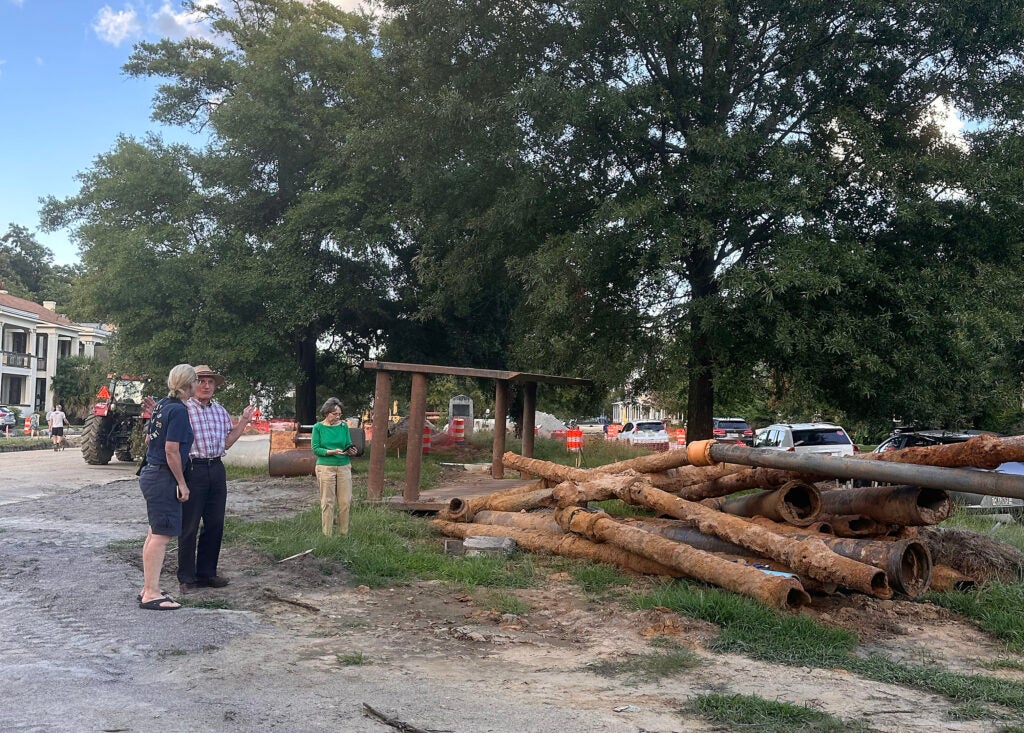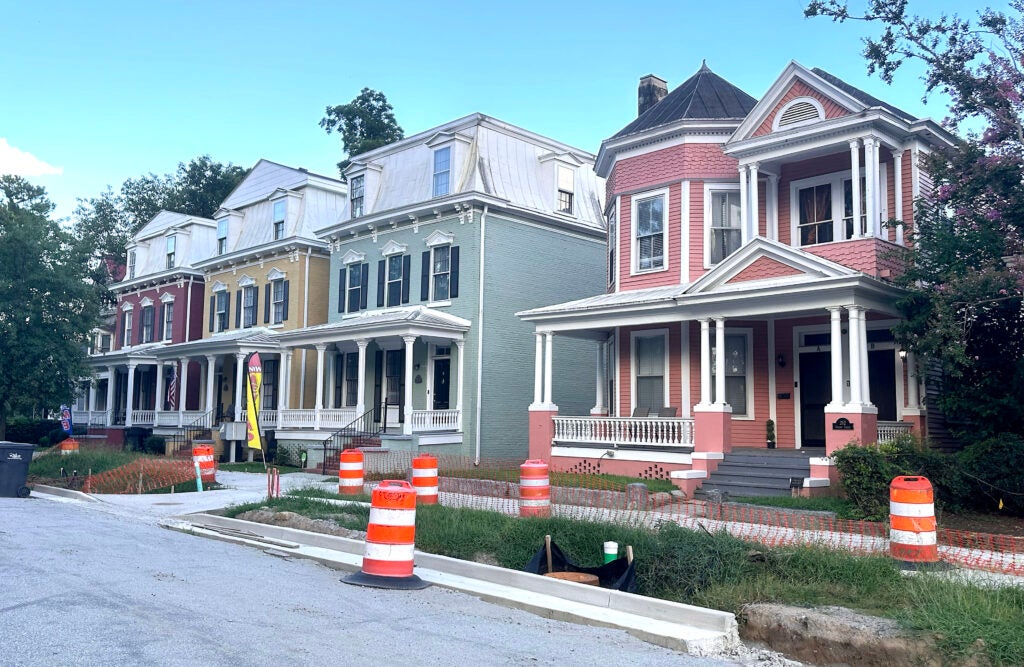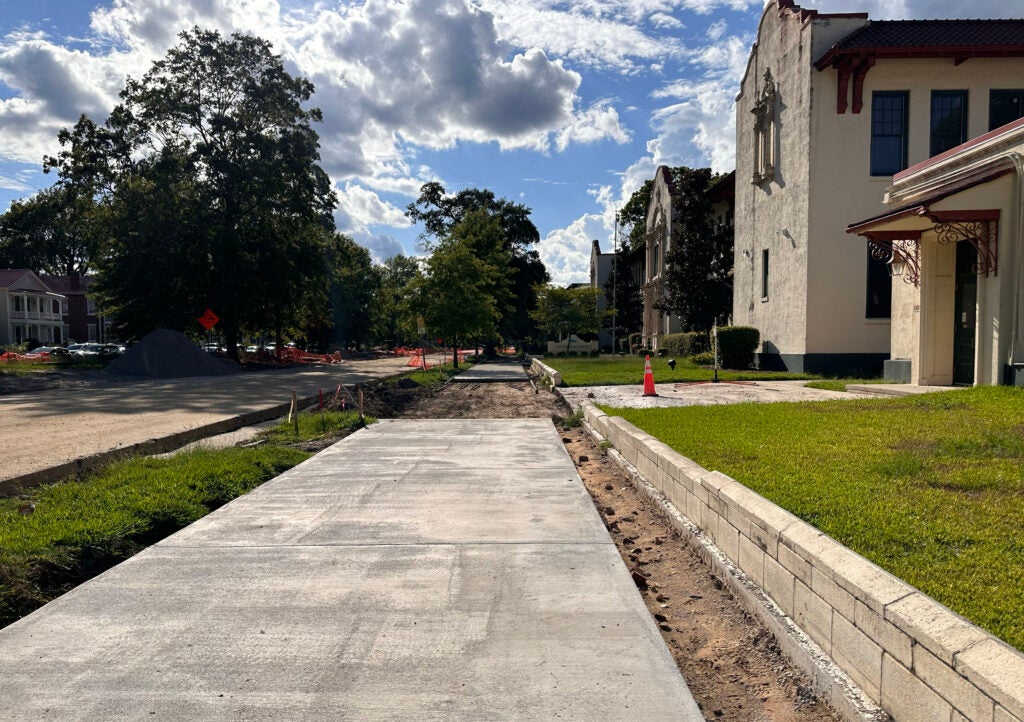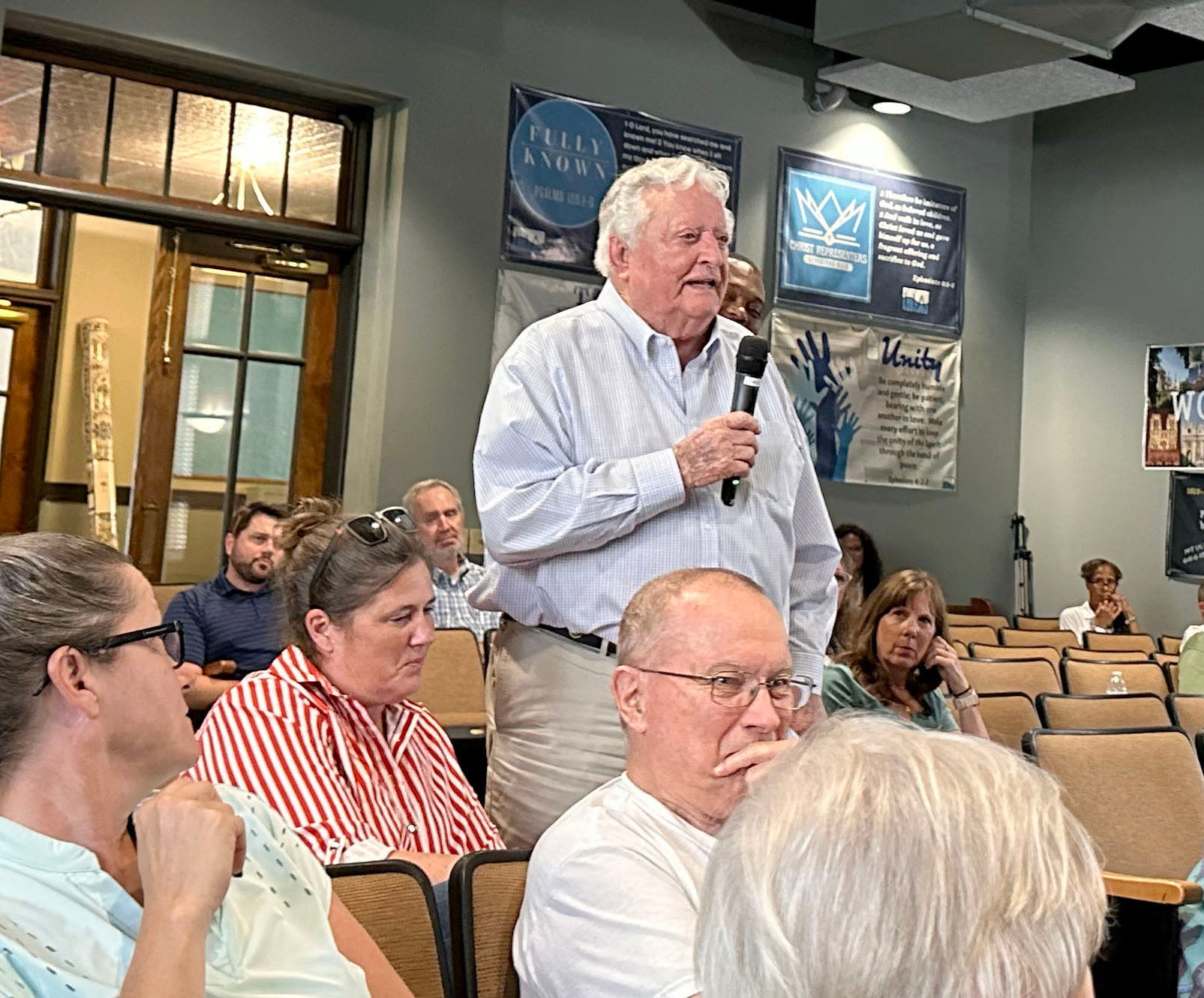Augusta could lose its downtown historic districts and up to 20 degrees of shady walks and landmarks if it continues with the planned destruction of 100 additional trees for an ongoing streetscape project, concerned citizens told city officials at a Monday town hall meeting.
The crowd was double the size of a group that took city officials to task a year ago about the planned removal of numerous historic oaks on Greene Street. Some of those trees were spared.
MORE: ‘A significant moment’: Area Democrats embrace Harris as replacement for Biden
The $100-plus-million project seeks to replace curb, gutter, sidewalks and storm drainage and relocate utilities along six downtown and Olde Town streets, said Abie Ladson, the former Augusta Engineering director who’s now a consultant on the projects and others.
This time about 100 crape myrtles and oaks were targeted earlier this month for removal and have several already taken out, mainly along Telfair Street, one of Augusta’s most historic.
Many downtown residents and business owners have now endured dug-up sidewalks, missing shade trees and assorted road closures for months or longer.
They had many comments at the meeting, which District 1 Commissioner Jordan Johnson said would be written down and addressed.
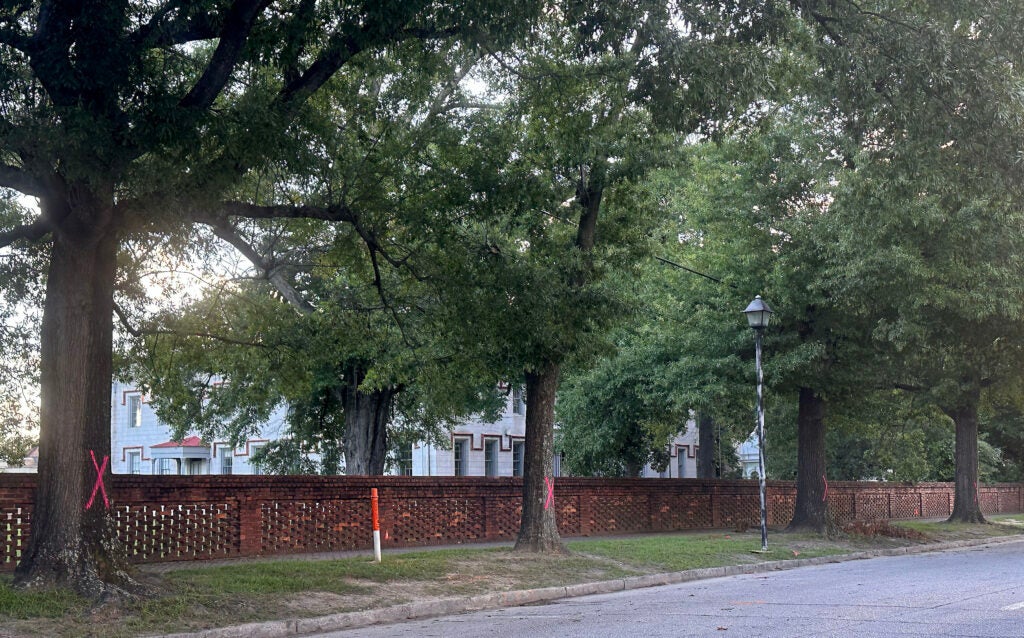
De-gardening the Garden City
Two of the city’s biggest tree advocates, Tree Commission Chairman Roy Simkins and Savannah Riverkeeper Tonya Bonitatibus, said the city is harming itself by removing so many mature trees.
“The Garden City is getting ready to be de-gardened from 15th Street to East Boundary,” Simkins said.
The area includes the historic Pinched Gut, also known as Olde Town, historic district as well as the downtown Augusta historic district.
Both are on the National Register of Historic Places, which typically protects old places from arbitrary destruction.
In Olde Town, the greatest threat is the removal of shade threes which typically keep an area about 20 degrees cooler, as well as trap and transpire water, Simkins said.
“If you take those marked trees down, is you’re going to take a pretty shady area and turn it into a heat zone,” he said.
Simkins said along Telfair, he saw only two targeted in a three-block stretch that needed to be removed due to age. In some cases, crape myrtles were being removed to be replaced with new crape myrtles and high-maintenance undergrowth plants the city rarely has plans to maintain, he said.
He’s among those who have pushed the city to hire an arborist and said Monday cities much smaller than Augusta have them on staff.
Bonitatibus said while she was reassured during a walk-through with Johnson, she’d prefer to keep the tree canopy and its communities, even if Augusta has to identify more funding.
“There’s a lot of history in different communities that we’re losing every day,” she said.
“The elephant in the room,” filmmaker Mark Albertin said, is that 2023 was the warmest year in history, according to the Global Climate Report.
A woman who identified herself as a public health professional Monday said some cities must deploy high-tech solutions to stay cool and avoid heat and respiratory ailments, while trees are the most cost-effective and lasting solution.
“A lot of cities would be so envious of us with all these trees,” she said.
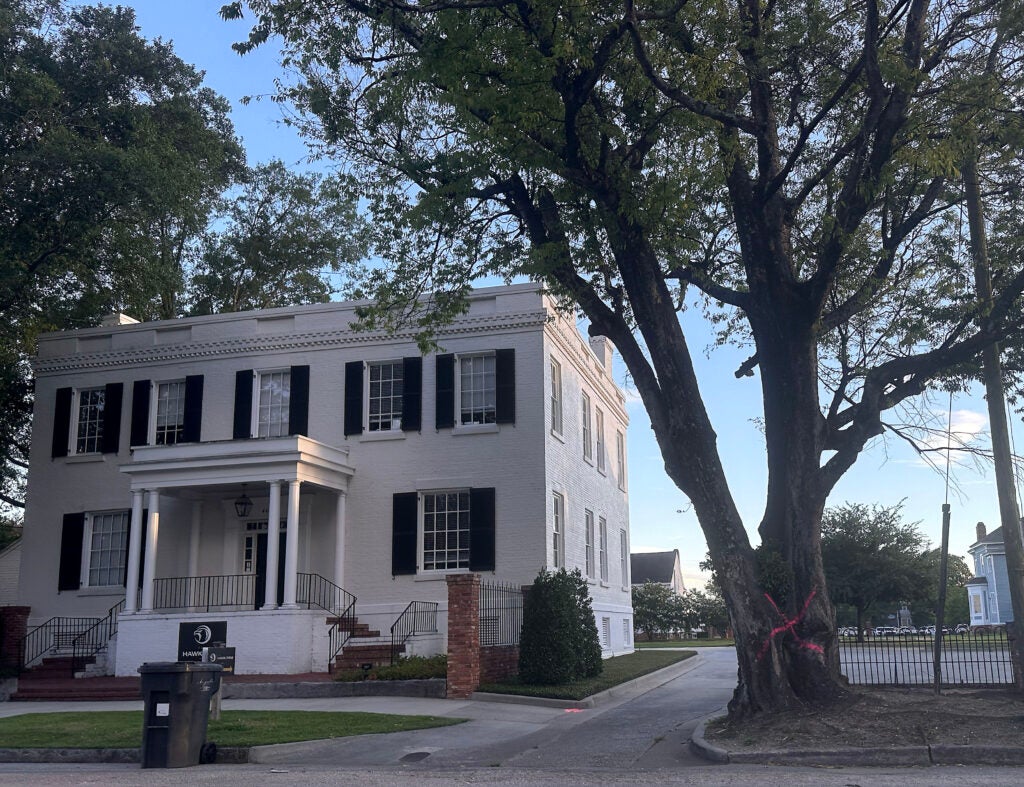
Historic designation includes landscape, streetscape
Erick Montgomery, the executive director of Historic Augusta, said he agreed with almost every comment of the dozens made Monday.
Part of the Olde Town and downtown historic districts’ designation on the register stems from the their landscape architecture – trees, plantings and hardscape, such as granite curbs and sidewalks, he said.
“We do not want to lose our designations,” which bring tax credits and other incentives to the areas, he said.
Residents said the protracted work has impacted their homes, businesses or both and that contractors should be penalized for delays.
At St. John’s Tower, seniors who live there have already had their shade trees removed by the city. Meanwhile, seniors with mobility difficulties have been without useable sidewalks for months, a resident said.
Eastside resident Sylvia Williams said as a delivery person, said she supported trimming trees to reduce safety hazards over taking them out.
A Telfair Street resident asked when the city planned to replace the historic granite curbs stacked through the massive construction site.
Representing “millennial moms,” another said incomes are already tight, so increased power bills and a lack of shade is not what her family needs.
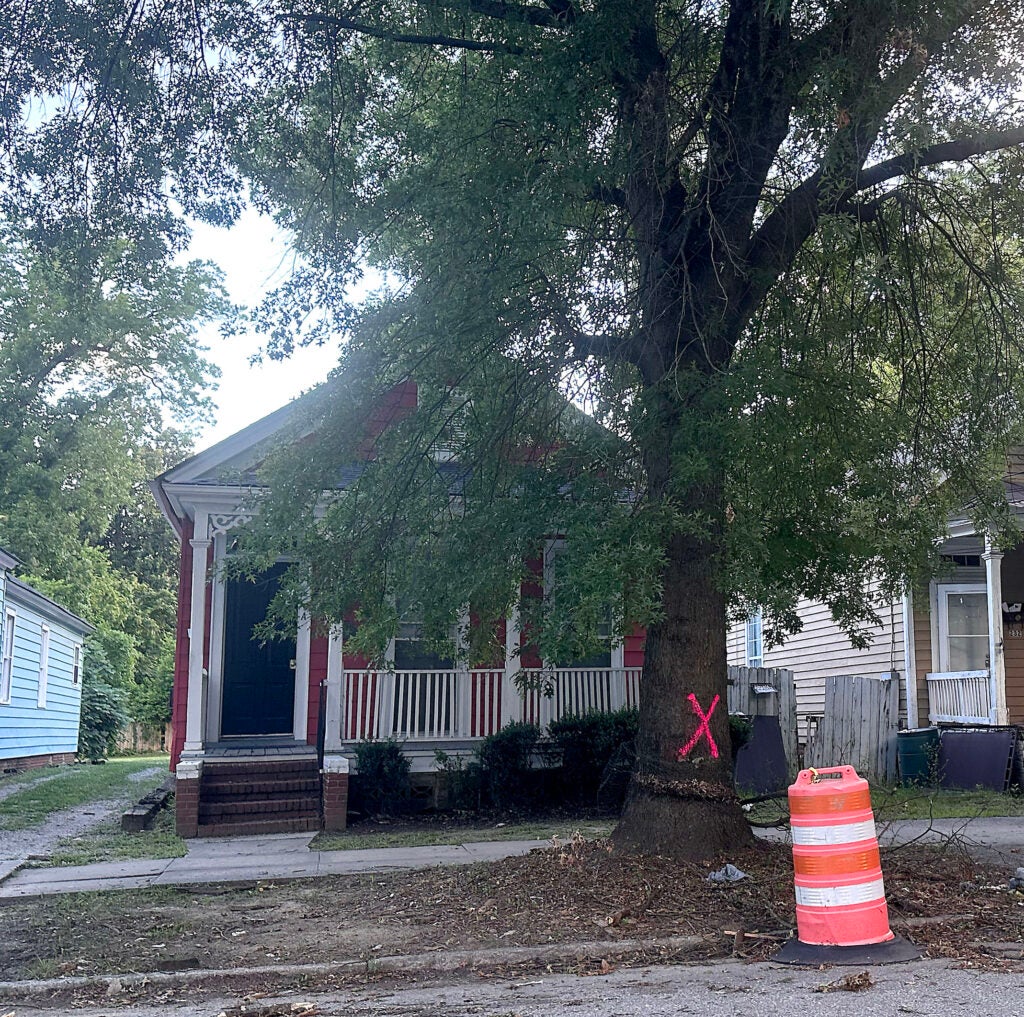
‘Nobody can give me a timeline’
Former Commissioner Matt Aiken, who lives on Telfair, said dug-up roadways have put wear and tear on his family’s vehicles for months. Some of the projects need “closure,” he said.
Another resident asked why potted trees on the city’s new downtown attraction, the Freedom Bridge, aren’t maintained and continue to die.
“Where is the plan for the next year, the next five years or 10 years to take care of what you just did,” she said.
Another Olde Town resident while she appreciates the city’s efforts, sidewalks and street lights have been out for months with no end in sight.
“I’m concerned that nobody can give me a timeline,” she said.
Bob Kallenbach, president of the Comfort House in the 300 block of Telfair, said he struggled to understand why Augusta would want to widen and replace sidewalks along what is not a particularly busy section of road.
Telfair “could be a destination,” but instead is being destroyed, he said. “I have never seen a city start a project of de-beautification like we are today,” he said.
Editorial: Save Augusta’s trees!
In the 1200 block of Telfair, former commissioner Moses Todd said the Plumbers and Steamfitters Local 150 has invested $4 million in its new training center. The organization of construction workers has maintained good contact with city officials, but that’s unlikely the case elsewhere downtown, he said.
“The failure is communication,” Todd said.
An East Boundary resident said many of her neighbors walk and their kids play in the shade of downtown trees and shrubs. “I saw a shrub with an ‘x’ on it,” she said. “What did the shrub do?”
Some homeowners spend up to $100,000 to put a mature tree in their yard, she said. Cities such as Savannah, Columbus and Charleston “would never take out those trees.”
Though few recalled it Monday, Ladson said the city conducted public input sessions on the projects. In 2016 when one-percent Transportation Investment Act sales taxes were beginning to come in, residents were relieved to see the plans removed the downtown parking wells.
The plans, devised by landscape architecture firm Cooper Carry, also included a downtown water feature, historic and arches welcoming visitors. Several bridge projects, including Fifth Street, have already been completed.
